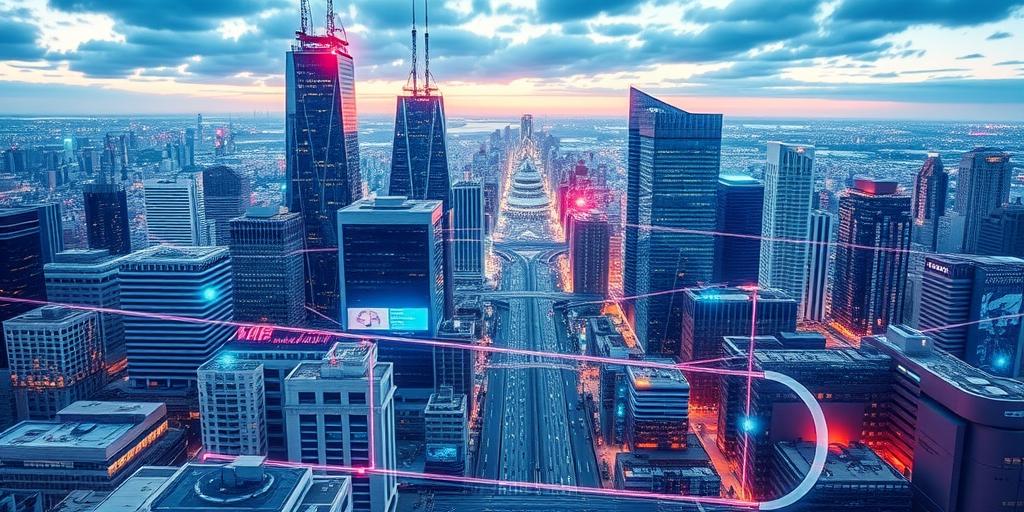As cities grow and technology advances, the concept of smart and connected urban centers is rapidly becoming a reality. These cities leverage data and digital tools to improve the quality of life for residents, enhance sustainability, and drive economic growth. Let's explore the future of cities and how they are being transformed by smart technologies.
What is a Smart City? A smart city is an urban area that uses technology and data to improve various aspects of city life. This includes infrastructure, transportation, energy management, public safety, and citizen engagement. The goal is to create a more efficient, sustainable, and livable environment.
Key Components of Smart Cities
- Smart Infrastructure: Implementing advanced sensors and systems to monitor and manage critical infrastructure such as roads, bridges, and water systems. Real-time data helps in identifying and addressing issues promptly, reducing downtime and improving efficiency.
- Smart Transportation: Utilizing technology to optimize traffic flow, reduce congestion, and enhance public transportation. This includes intelligent traffic management systems, connected vehicles, and electric vehicle infrastructure.
- Smart Energy: Deploying smart grids and energy management systems to optimize energy consumption and promote renewable energy sources. This helps in reducing carbon emissions and creating a more sustainable energy ecosystem.
- Smart Public Safety: Leveraging data analytics and surveillance technologies to improve public safety and security. This includes predictive policing, real-time crime mapping, and enhanced emergency response systems.
- Citizen Engagement: Using digital platforms and mobile apps to engage citizens in city governance and decision-making. This fosters transparency and collaboration, ensuring that city initiatives align with the needs and preferences of residents.
Examples of Smart City Initiatives
- Singapore: Known for its integrated smart city platform, Singapore uses data analytics and IoT technologies to manage traffic, energy consumption, and public services efficiently.
- Barcelona: Pioneering smart city initiatives, Barcelona has implemented smart lighting, waste management, and transportation systems to improve sustainability and quality of life.
- New York City: Investing in smart infrastructure and data-driven solutions to address urban challenges such as traffic congestion, crime, and climate change.
Challenges and Considerations
- Data Privacy and Security: As smart cities rely heavily on data collection and analysis, ensuring data privacy and security is paramount. Robust cybersecurity measures and data protection policies are essential.
- Digital Divide: Bridging the digital divide and ensuring that all residents have access to technology and digital literacy programs is crucial for equitable smart city development.
- Integration and Interoperability: Ensuring that different smart city systems and platforms can communicate and work together seamlessly is essential for achieving holistic urban transformation.
The future of cities is undoubtedly smart and connected. By leveraging technology and data, urban centers can become more efficient, sustainable, and livable. Addressing the challenges and considerations associated with smart city development will be key to realizing the full potential of these urban innovations.









